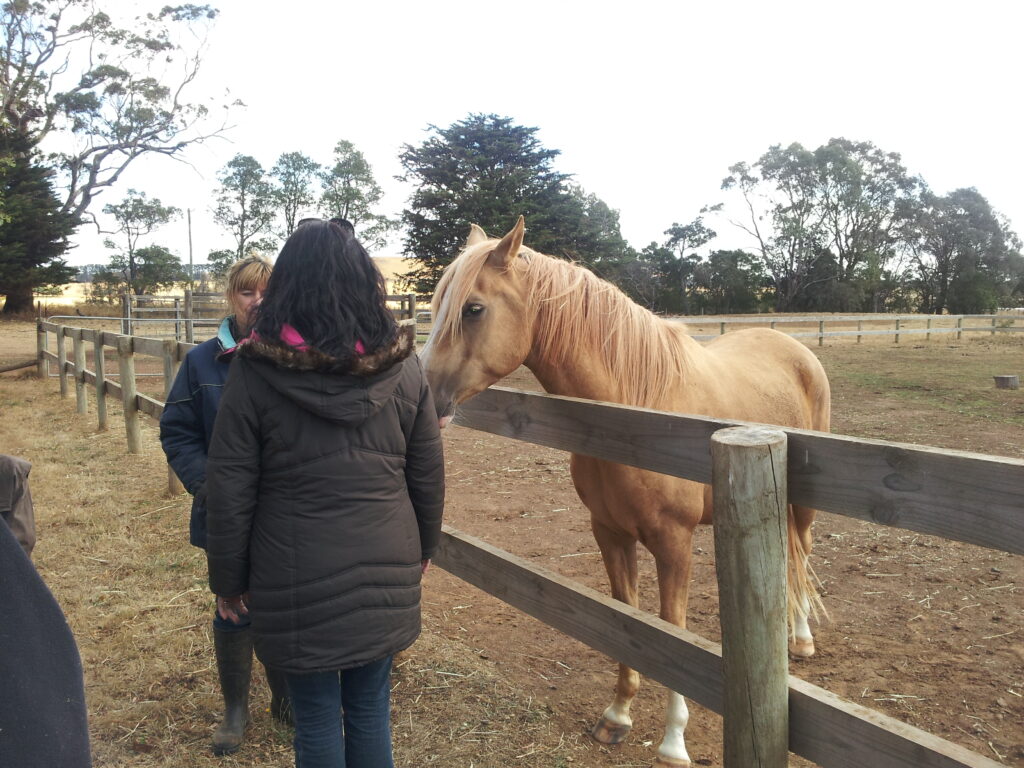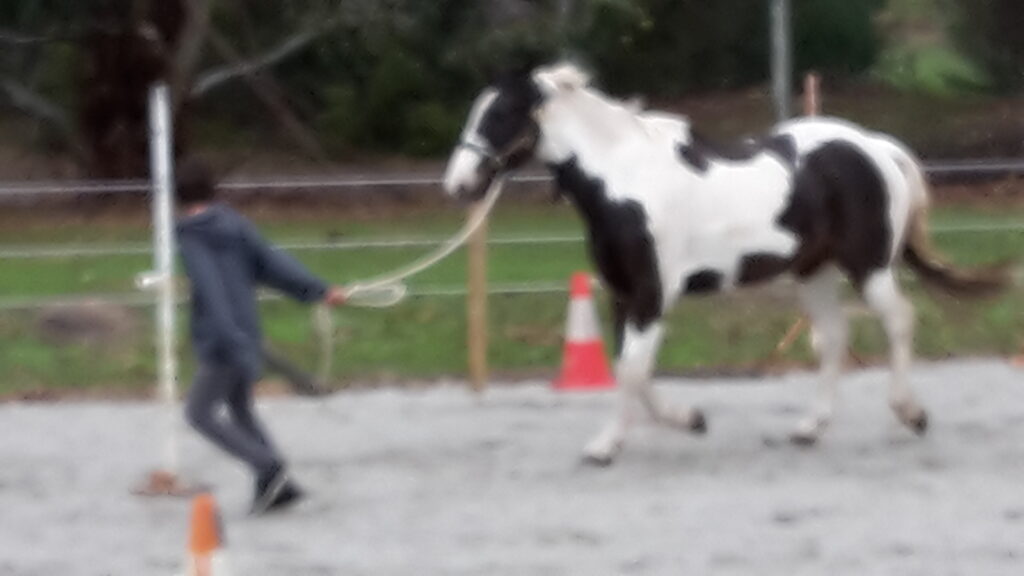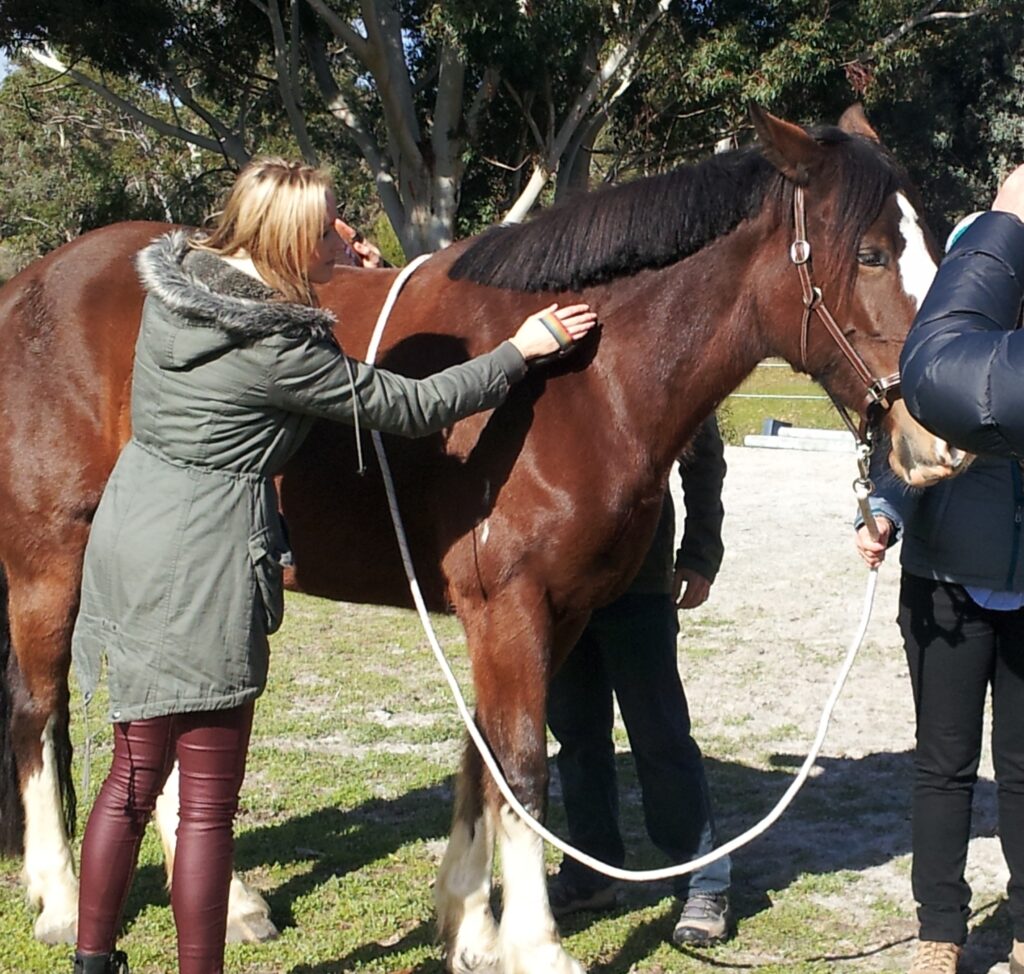My journey into Equine Assisted Learning (EAL) began in 2012, although at the time, I had no idea what it truly entailed. At the time I was not looking for Empathy and Emotional Intelligence training. Horses had been part of my life, on and off, for many years. Over these years, the horses taught me invaluable lessons about myself and my team. I found it fascinating to help others who seek assistance through this unique approach.
EAL is an experiential learning approach that involves interactions with horses to promote personal development and growth. This approach focuses on life skills such as communication, leadership, teamwork, self-awareness, and empathy. It provides an interactive environment that promotes awareness, emotional regulation, and better social skills through hands-on experiences with horses
Diverse Participants and Their Transformations
The individuals I work with come from diverse backgrounds, spanning ages 9 to 65, and include both males and females from various educational and career paths. Despite their differences, they all find value in the sessions, often realising later just how beneficial they were. The sessions help individuals realise so much about their own mindset. The ability to apply personal development insights does not correlate with age, education, or career. Many initially sought solutions for their teams’ issues, only to discover that the real change needed to happen within themselves. They learned to control their bodies and refine their thinking, realising the significant impact these factors have on their horses’ behaviour.
Most EAL sessions are ground-based, focusing on interactions and activities that do not involve riding. EAL includes interactive activities with horses, known for their sensitivity and social nature. These interactions teach participants about communication, trust, and emotional regulation. The primary goal of EAL is to enhance life skills, including leadership, problem-solving, conflict resolution, and self-advocacy. Participants might lead horses through obstacle courses or engage in role-playing scenarios that emphasise body language and communication. Each activity targets specific skills, and it’s the facilitator’s role to select the most suitable ones for the participants. Many activities are designed to enhance communication, trust, and leadership skills. These skills can be applied to academic, personal growth, and professional settings.

Benefits of EAL
Equine Assisted Learning (EAL) offers several benefits for individuals, enhancing both personal and professional development through interactions with horses.
EAL activities often involve problem-solving tasks that require critical thinking and adaptability. This helps participants develop these skills in a supportive environment. When participants use feedback from their horses to gauge their progress they focus on self-improvement. They embrace the learning process, seeing every challenge as an opportunity to refine their techniques and decision-making.
Emotional Regulation and Self-Awareness
Emotional regulation and self-awareness are crucial components of emotional intelligence, enabling individuals to understand and manage their emotions effectively. Through Equine Assisted Learning (EAL), participants engage in activities that promote these skills by interacting with horses, which mirror human emotions and provide immediate feedback. This process helps individuals become more aware of their emotional states and learn to regulate them, fostering personal growth and development.
When multiple sessions occur, EAL can also help participants identify emotional triggers and develop strategies to manage their responses, leading to improved emotional regulation.
Improved Communication and Social Skills
Participants learn both verbal and non-verbal communication skills through interactions with horses. Interacting with horses encourages empathy, as participants learn to understand and respond to the emotions of these sensitive animals, which can translate into better interpersonal relationships. This experience enhances their ability to communicate effectively in various aspects of life, as horses respond to body language and tone of voice.
Increased Confidence and Self-Esteem
Working with horses can build trust and confidence, leading to increased self-esteem. The non-judgmental nature of horses allows individuals to feel accepted and supported, fostering a sense of confidence.
EAL teaches the importance of setting boundaries and building healthy relationships. Participants learn to establish and respect boundaries, both with horses and in their personal lives.


Empathy and Emotional Intelligence
EAL encourages the development of empathy and emotional intelligence. Participants learn to understand and respond to the emotions of others, which is facilitated by the sensitive and responsive nature of horses.
As Brené Brown has been heard to say “Empathy fuels connection.” Which the horses do so well. People are often amazed to learn that their horses have minds of their own and can respond to simple cues when trained with empathy and consistency. They have the capacity to see with the eyes of another, listen with the ears of another, and feel with the heart of another.
Mindfulness and Relaxation
Interacting with horses promotes mindfulness and relaxation. The calming presence of horses helps individuals feel more grounded and present, reducing stress and anxiety. Over 21,000 scientific articles on mindfulness have been published since 2012 and the global corporate wellness market, which includes mindfulness programs, was valued at $53 billion in 2021. These statistics highlight the widespread adoption and growing economic impact of mindfulness practices globally, and what a better place to be mindful than in a paddock with horses.
Man’s Search for Meaning
A book which changed my thinking about life is “Man’s Search for Meaning” by Viktor Frankl. This influential work chronicles his experiences as a prisoner in Nazi concentration camps during World War II and explores the importance of finding meaning in life, even in the face of suffering. He wrote “Between stimulus and response, there is a space. In that space lies our freedom and power to choose our response. In our response lies our growth and freedom.”
Viktor Frankl’s “Man’s Search for Meaning” provides profound insights into the human quest for meaning, even amidst unimaginable suffering, which resonates deeply with the principles of Equine Assisted Learning (EAL).
This quote emphasizes the importance of self-awareness in emotional regulation, highlighting the power of choice in how we respond to our emotions and the potential for growth that comes from mindful decision-making. The horses help people to highlight the incredible capacity they have to make that choice. To own their own destiny.
Just as Frankl emphasizes the importance of inner strength and self-awareness in overcoming adversity, EAL encourages individuals to develop self-awareness and emotional regulation through interactions with horses.
Overall, EAL provides a unique experiential learning environment that highlights the significance of purposeful work and connect, empowering people to move beyond their circumstances and embrace their own growth. it promotes personal growth, emotional well-being, and the development of essential life skills. Empathy, willingness to struggle, learning from failure, and commitment are accessible to all, regardless of age, experience, income, education, or location.